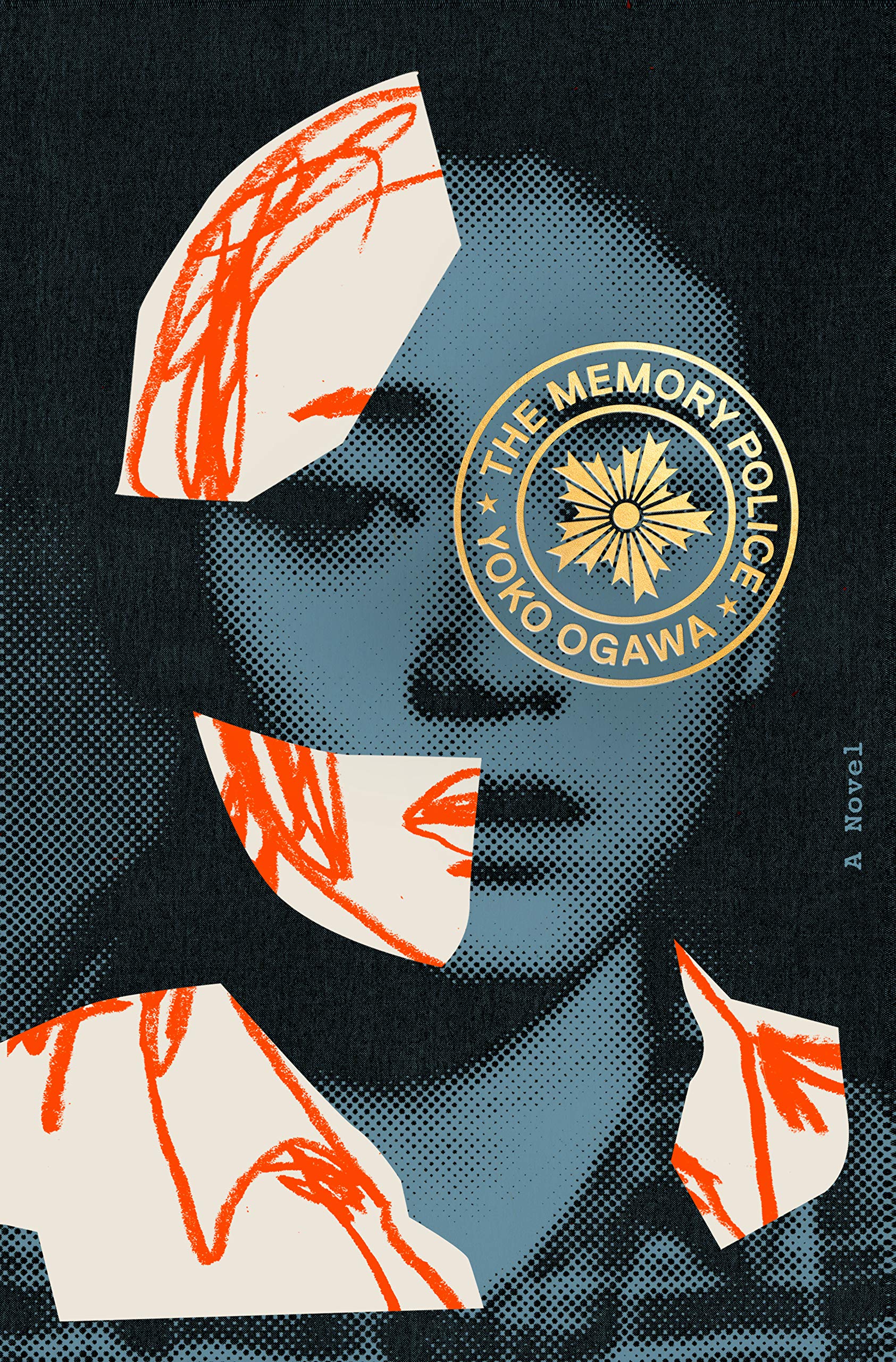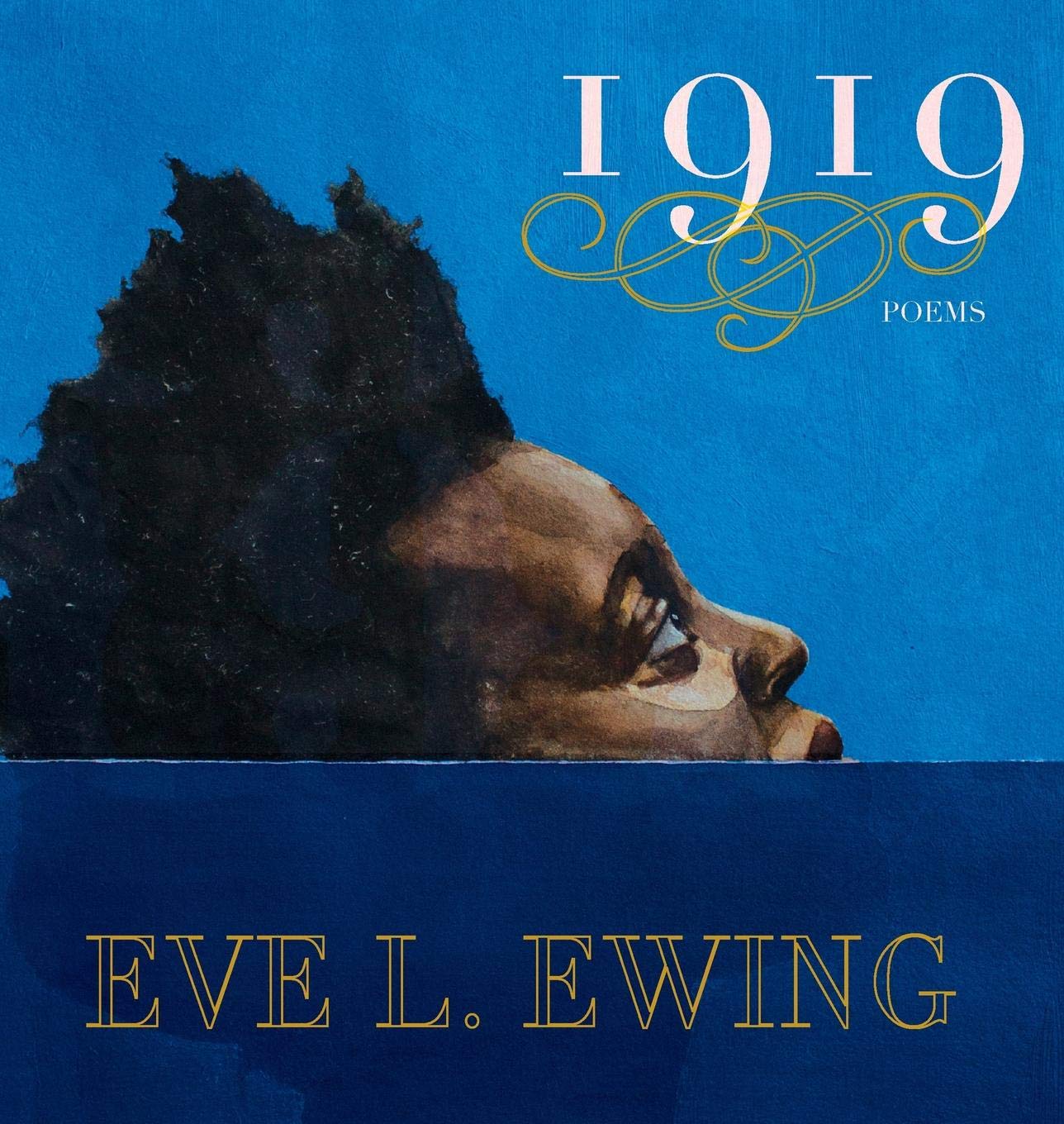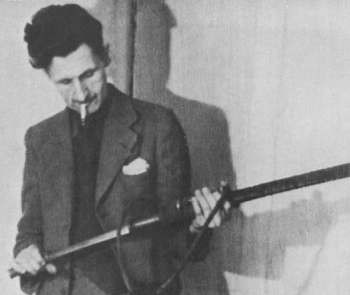OK, I know it’s been a little bit since I’ve written. I would really like to do so more as we round into the new year, and as we try to save our democracy from a death-cult that worships only the raw exercise of power. But for now we’re going to look at the last year in books.
As in other years, this is NOT a “best books of 2019” or anything. I wouldn’t lay claim to having read enough to begin to adjudicate that. These are just my favorites: books that have moved me, that have educated me, that have made me see things differently.
Anything I’ve missed you think people should read? Please leave it in the comments. I’m always on the lookout for my next book, and the one after that, and the one after that…
(Read more!)
Honorable 2018 Mentions

There are a few books that came out in 2018 that I read this year that really were a vital part of the year. I’d be a real jerk if I didn’t mention them.
Friday Black– Nana Kwame Adjei-Brenyah. Disorienting, off-kilter, sometimes terrifying, sometimes incredibly moving, sometimes too uncomfortably close to our real world to be read without your skin crawling: this debut collection is usually described as “incendiary”. That’s the word we use when a writer shocks us with racial realities, but I’d say Adjei-Brenyah is more corrosive. These stories burn into your skin. They melt away comfort. Like Saunders, they are fierce and loopy indictments of our corporatism capitalism, mixed with the horrors of white supremacist violence. But at some point, what’s the difference? There is quite a bit of hope, though, and a story that took place in a hospital, with a young man who wants to write and his sick father, is both terrifying and touching and ultimately a work of surreal beauty. Few things this year had as much an impact on me.
There, There– Tommy Orange. This novel of interconnected stories about “urban Indians” take place in the here and now, involving people who have been subjugated and evicted, marginalized and massacred, sent away from their own lands, and sometimes trickling back when unwelcome cities have been built upon them. Orange’s incredible book shows us that these are real people, whose lives have been bent by the arc of America’s murderous hatreds, and what the weight of that hatred means. To paraphrase Malcolm X, these cities landed on them.
The Rise and Fall of the Dinosaurs– Steve Brusatte. There’s not much to say here. This is a compulsively readable, incredibly well-researched, and personal tale about dinosaurs. There may have been a few times where it was tooooo personal- stories of giddy grad students, etc- but that is small beer. I learned a lot, and got a vivid picture of all the new research that has expanded the world of the dinosaurs- and expanded ours. It’s a cliche to say that a book brings dinosaurs to life, but this one painted an incredible picture of an unrecognizable planet, and draws the connection between that world and ours. It bridges unimaginable stretches of time, and it a true force of deep learning and powerful imagination.
New Translations of Older Books

These also didn’t come out in 2019, but I couldn’t read them until 2019. And new translations are essentially a new book, right? Maybe. The point is, a book doesn’t count until it’s in English.
A King Alone– Jean Giono. A murder mystery in an isolated town. A mysterious military man who helps catch the killer. A long denouement about him maybe not being so mysterious, or maybe more mysterious? Or maybe kust lonely. I’ll be honest, I didn’t understand everything that happened, or why, and was kind of bored the last 50 pages of this slim novel. But it left me unsettled, and unsure of why things happened, and that stuck with me. I became more uneasy the more I reflected on it, and felt my moorings even less secure. That’s pretty cool. I really liked Giono’s short novel on Melville, and this makes me want to keep seeking out translations.
The Memory Police– Yoko Ogawa. Another cold, mysterious place, Ogawa’s novel is set on an island where things keep disappearing. Whole things, like birds or photographs or plants, and then people forget them. And if they don’t, if they somehow hold onto their memories, the Memory Police come for them. The narrator isn’t someone with those memories, which makes the whole novel uncomfortable and sad. You want her to transcend this, so badly, but she’s losing. She’s losing herself. A vivid metaphor for the way totalitarianism of all sorts destroys identity, and the way we slowly accept the terrors it brings. Wave by wave, piece by piece, until we disappear completely. I don’t know how timely this felt was when it was written in the 90s, but it certainly seems horribly prescient.
Drive Your Plow Over the Bones of the Dead– Olga Tokarczuk. This year’s Nobel Prize winner (the one that didn’t praise Chetniks!), Tokarczuk also made an appearance on last year’s list. I only say that so I could boast, when she won, that I had been reading her for years! Whereas Flights was formally strange and felt like you were moving through the flourescent timezones of a hundred airports, this is more firmly in snowy Polish plateaus. People keep dying. The narrator thinks it is animals taking their revenge for hunting and plowing and the general waste that humans are wreaking. This is less a mystery than a study of character and place, a universal story of that feels claustrophobic. The reveal might be predetermined, but every action seems authentic.
Hear Our Defeats– Laurent Gaude. What does it mean to lose a battle, a war, a country, and empire, a dream? What does it mean to be crushed? What happens when lives are lost for the sake of your failure? Gaude takes us between a cast of characters in these woven stories, from Hannibal to Lee and Grant (both of whom were failures in their own ways), to Haile Selassie, the god-king defeated by fascists. Through all of these is a French Special Forces officer whose past involves terrible deeds, and an archaeologist trying to rescue culture for the atavistic hordes of ISIS. It’s a terrible reminder that things crumble. Everything crumbles at some point, including who we are.
Stalingrad, Vassily Grossman. Confession: I just started this, and am only 300 pages in, but it is maybe one of the best books I’ve ever read? Grossman’s epic of the most brutal, cruel battle in human history is told from the point of view of dozens of characters. We pass from person to person, learning about them, in perfect little character studies. And in doing so, we see what lives are like caught up in the madness. The book opens with a short scene of Mussolini visiting a mad Hitler, ready to open the southern front toward Stalingrad, and then moves to a Russian farmer, packing up the night before he is called up. He tries to ready his family for the coming winter. He looks at a his tiny shack, which he knows he’ll never see again. And him and his wife are locked in inexpressible grief, which they can’t word. In a few short pages, after bringing us to those making the decisions, Grossman shows the lives of those ground up by them. I’m not even in the real fighting yet, but every chapter, every page has impacted me deeply.
Favorite Non-Fiction
OK! 1000 words into 2019 books and we’re getting to books published in 2019!

Trick Mirror, Jia Tolentino. I don’t know if there is any writer better than Tolentino at focusing a microscope on herself and turning it into a telescope. Or, more accurately, a 360-degree view of the panopticon we’ve put ourselves in. She can talk about her experiences in a teen-fake-sexy reality show, and dive into why we view what we do, and how the need for celebrity has warped us. She captures the attention economy. She captures, better than anyone else, how the internet has not just warped our minds, but ourselves. She also understands deeply the way engrained prejudices and hatreds and passions linger and impact us, and how all these terrible trends conflate and converge and confuse. She deeply understands our politics, and how we got her. Rich in culture and deeply-read, Tolentino, one of the finest writers of her generation, doesn’t give answers. More disquietingly, she seems to suggest that there aren’t any. We’ve entered the panopticon and thrown away the key.
I Used To Be Charming– Eve Babitz. The poet laureate of sexpots, a deeply well-read, self-lacerating, and hyper-aware “it girl”, the dazzled and dazzling avatar of 60s and 70s Los Angeles, Eve Babitz seemed strictly of a time and place. Her great genius was that she was in love with the scene, but always skeptical of it, and always knew it there was something uglier being borne. That’s why it is less jarring than it seems when, in this new collection of essays, she moves into the 70s and 80s, when everything curdled into Reaganism and the commodification of counterculture. Babitz is never anything but incisive on the strange currents without and within, and it is a joy to see her probe the gaudy panic of her time. The only new essay in the book is a fearless examination of the accident that left her badly burned, and is somehow still funny. But what do you expect from a great beauty, who, while probing our times with the clearest of eyes, could toss away this line about herself? “In the mirror I check out my blond hair, cut in a long, shaggy, semi-hysterical mess, which, on good days, if it’s spiked right, causes truck drivers to think I have great legs. But on normal days, like today, if I shake my head upside down enough, I look like Rod Stewart’s idea of a good time, which is, unfortunately, slightly passe.”
The End of the Myth– Greg Grandin. An amazing book on the way America has always pushed outward, subsuming everything in its way. A devouring nation. Grandin connects the westward expansion with the wars in Afghanistan with the border wall, and it all makes sense. It’s coherent and gripping. Full review here.
Crazy Horse Weeps– Joseph M. Marshall III. This is almost of a piece with Orange and Grandin. Marshall’s book, subtitled “The Challenge of Being Lakota in White America” is another reminder that Native Americans were never really considered American. Their culture was destroyed, systemically, by slaughter and by policy, by the cruelty of Indian schools and the hideous logic of dispossession. It’s another reminder that these were actual nations, with languages and politics and history. Marshall talks vividly about how that culture can be maintained, and what it means to be in a netherworld- existing in White America, which treats you as a particularly inconvenient subgroup, a portion of the census, something to be “honored” with the barest lip service. How can Lakota values survive? He doesn’t ask what they have to offer to America. He asks how they can survive America.
How to Hide an Empire– Daniel Immerwahr. So we know America devoured nations as it moved West. But it kept doing so, even after we passed California. Immerwahr looks at the weirdly hidden history of America’s empire, how we colonized and owned millions and millions of people around the globe, and what that meant. In 1940, 20 million people were in American territories. That shaped us in countless ways- and shaped those people even more, sometimes for the better, often for the worse. America was never just from sea to shining sea- it was everywhere, and still is. Immerwahr extends his book, fascinatingly, to how technology (as small as the standard size of a screw) helped America extend its empire as much as our military. Not every book makes you look differently at the world. This one did.
Three Women– Lisa Taddeo. Taddeo gives a deep, deeply personal look at the lives of three women. One, in a sexless, almost touchless marriage having an affair with a high school sweetheart who can barely pretend to care about anything other than a quick screw. One who was abused by a charismatic and beloved teacher. One who is rich and whose husband likes her fucking around. All the stories are tragic, each reveal seeming to be worse than the last. All the women are consumed by the men in their lives, shapng themselves around their desires while exploring their own. All their lives are warped. The last woman, the rich, attractive one who seems to have it all, has cascading tradoors of pain, and her conversation with the wife of a man she was screwing was as painful as anything else in the book. It showed that for all the progress we’ve made with women being the agents of their own sexuality, there are so many layers of power, history, and ownership, that it seems insurmountable. A disquieting and exquisitely-written book.
Fiction/Poetry

1919– Eve Ewing. In Chicago, in 1919, there were what we call “race riots”, which is usually a euphemism for black people trying not to be killed by marauding whites aided by the police. In that hot summer, a young black boy drifted into a “whites only” stretch of Lake Michigan. He was pelted with rocks, and drowned. Ewing’s book of poetry looks at that summer, looks before it and after it, sees how that violence bred the next 100 years of our history, how it broke and reshaped lives. Her poems are as vivid as anything else she writes. She plays with forms, with styles, with deep realism and beautiful flights of fancy, no more so than a brief encounter with an elderly Emmett Till in a store, in which…nothing happens. He’s a normal older man. But that was never to be. Nothing so sweet was ever to be. It never could have been.
Ewing is a Chicago treasure and a vital voice in America. It’s an honor to be alive at the same time.
Orange World– Karen Russell. I loved Russell’s Vampires in the Lemon Grove, and really liked most of her Swamplandia, but this is above and beyond. These short stories are funnier and weirder and sadder and scarier than anything in her first collection, and don’t suffer from loose ends like Swamplandia. “Black Corfu” made death, and beyond, a living, enveloping threat in a strictly striated culture. “The Gondoliers” showed us what happens when the waters rise, with a bit of mystical beauty. And “Orange World”…well, has anything better been written on the exhausting terrors of motherhood? I don’t know, but the same size of mothers I have talked to who have read the story point to: no. I don’t know how Russell’s imagination works, but I am damn glad it is here.
The Water Dancer– Ta-Nehisi Coates. Coates’s long-awaited first novel, this book about the mutating impacts of slavery shows that his talents expand to any form. The novel is far from perfect- I don’t think I ever understood the central magic- but it opened up a world that we thought we knew. I’ve never read anything more powerful or wrenching about the violence slavery actually did to families, about what it meant to have your family just taken away, sold over, to disappear forever into the endless maw of American greed. Just how, in the purest sense, dehumanizing that was. Coates also describes the Underground Railroad in a way I hadn’t seen- practically an army, with its own strict codes of violence and rule, who saw themselves fighting a war, along with some white allies. No matter how much you thought you knew slavery, Coates makes it bloody and real and alive.
Disappearing Earth– Julia Phillips. A stunning debut novel, and another cold mystery- this one set in Siberia, on the Kamchatka Penninsula. Two girls disappear on afternoon. We’re with them as they disappear. We’re with witnesses. We’re with other people in the region. We see, month by month, how this ripples out, how it batters and bruises people. We see racism against the natives, some of whom have had disappearances, too. We see stunted lives at the end of the world. We see sadness and lust and love. Phillips captures a place that is deeply unfamiliar but people who are instantly understandable. As the year winds, we find ourselves caught in the lives and much as the deaths.
Nickel Boys– Colson Whitehead. Whitehead has long been one of my favorite writers. The Intuionist is up there in my all-time most loved novels, and John Henry Days is something I’ll never forget. It’s been really gratifying to see him get the credit that is his due, starting with The Underground Railroad (full review here). Nickel Boys is smaller in scope but of a piece: the legacy of hate; the reality of violence as social control, the cruelty of a system that sees you as less than human. As in Railroad, Whitehead skips the parts that make readers happily angry. When an innocent boy is sentenced to a racist reform school/prison, we don’t see his trial. We go from his arrest to being dropped off. The trial would make us all feel like little Finches, but we don’t get that luxury. There are no luxuries. There are small graces, but even those are stolen and furtive and ultimately futile. The end contained a shock so impossible I had to read it several times before my brain let me comprehend what happened….but it all made sense, in a brutal and horrible and inevitable way. In that way, it’s deeply American. It’s the story of our country. It’s the story from which we can’t look away.

